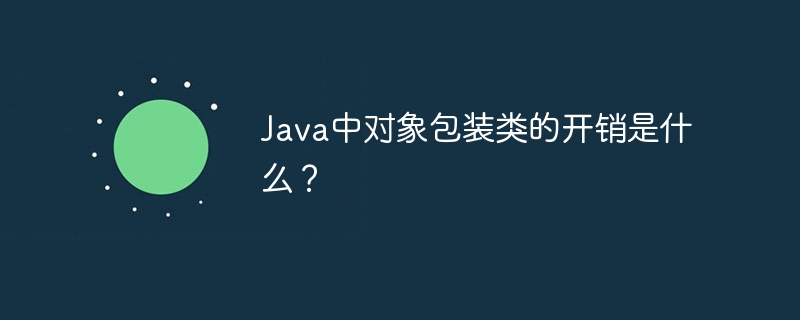
The overhead of object wrapper classes includes: memory overhead: additional allocation of space to store data values and object references; performance overhead: object allocation and garbage collection; API compatibility: type conversion required. Optimization suggestions: avoid frequent conversions; use primitive types; use boxing/unboxing operations.

Overhead of object wrapper classes in Java
Object wrapper classes are used in Java to wrap basic data types into objects kind. During the development process, sometimes you need to convert between two different data types. In this case, you need to use an object wrapper class.
Overhead analysis
When using object wrapper classes, the following overhead will be generated:
Optimization suggestions
In order to minimize the overhead of object wrapper classes, the following optimizations are recommended:
valueOf() and XxxValue () methods (such as Integer.valueOf() and intValue()) for boxing and unboxing operations. Practical Case
Consider the following code example, which evaluates the performance difference between an object wrapper class and a primitive type:
long start = System.currentTimeMillis();
for (int i = 0; i < 10000000; i++) {
int num = i;
}
long end = System.currentTimeMillis();
System.out.println("原始类型:"+(end - start)+" 毫秒");
start = System.currentTimeMillis();
for (int i = 0; i < 10000000; i++) {
Integer num = i;
}
end = System.currentTimeMillis();
System.out.println("对象包装类:"+(end - start)+" 毫秒");In In this example, the primitive type loop is much faster than the object wrapper class loop, which demonstrates the performance overhead of the object wrapper class.
The above is the detailed content of What is the overhead of object wrapper classes in Java?. For more information, please follow other related articles on the PHP Chinese website!
